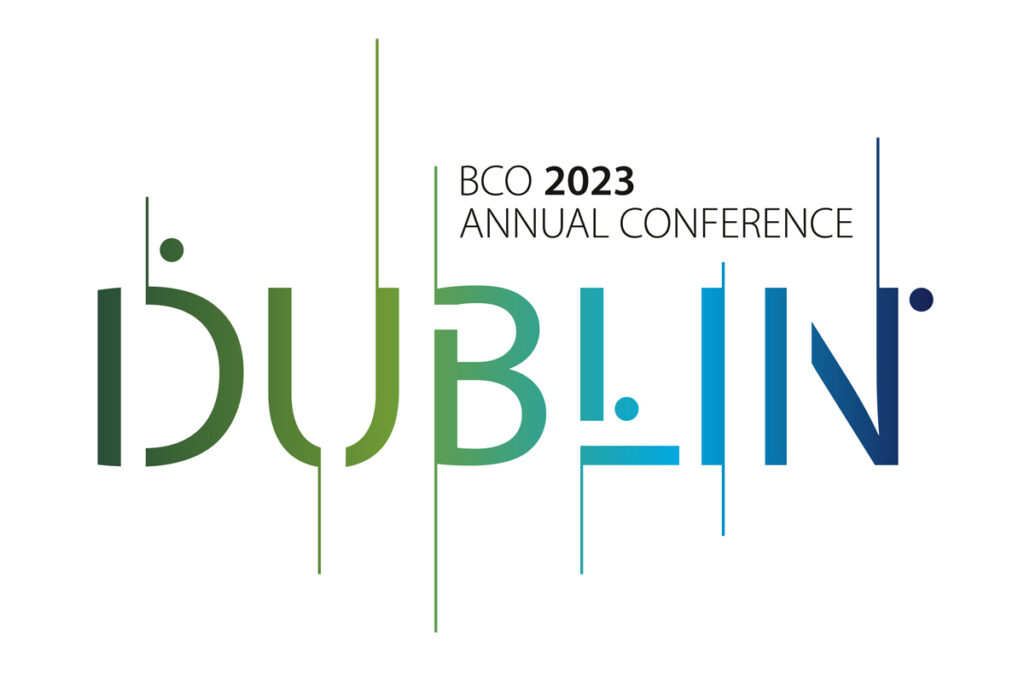

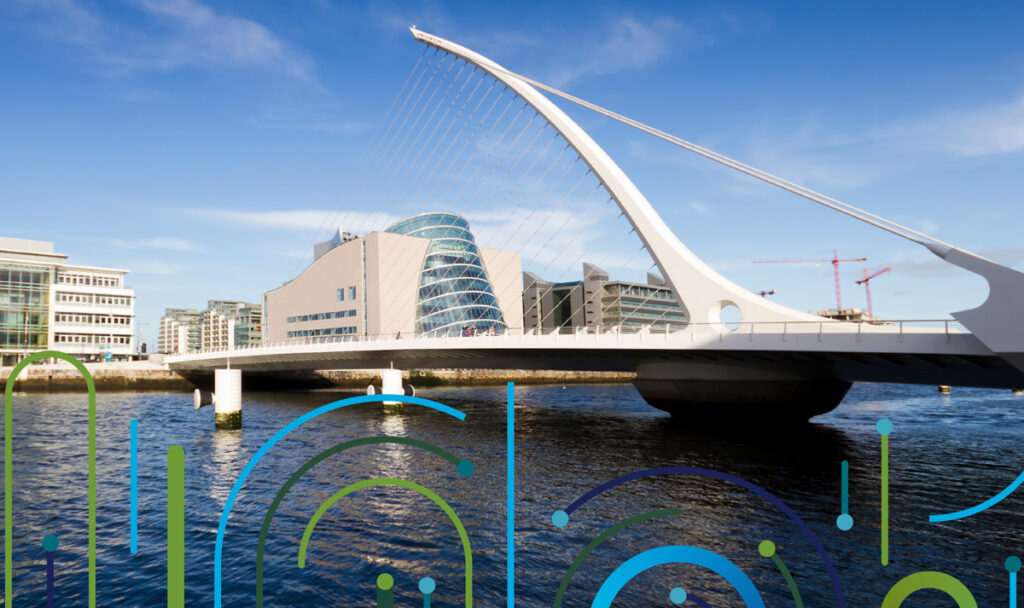
We are pleased to see that delegates have been quick to secure tickets now that bookings for the 2023 Annual Conference have opened to both BCO members and non-members. If you are planning on joining us in Dublin this year, we strongly encourage you to book sooner rather than later.
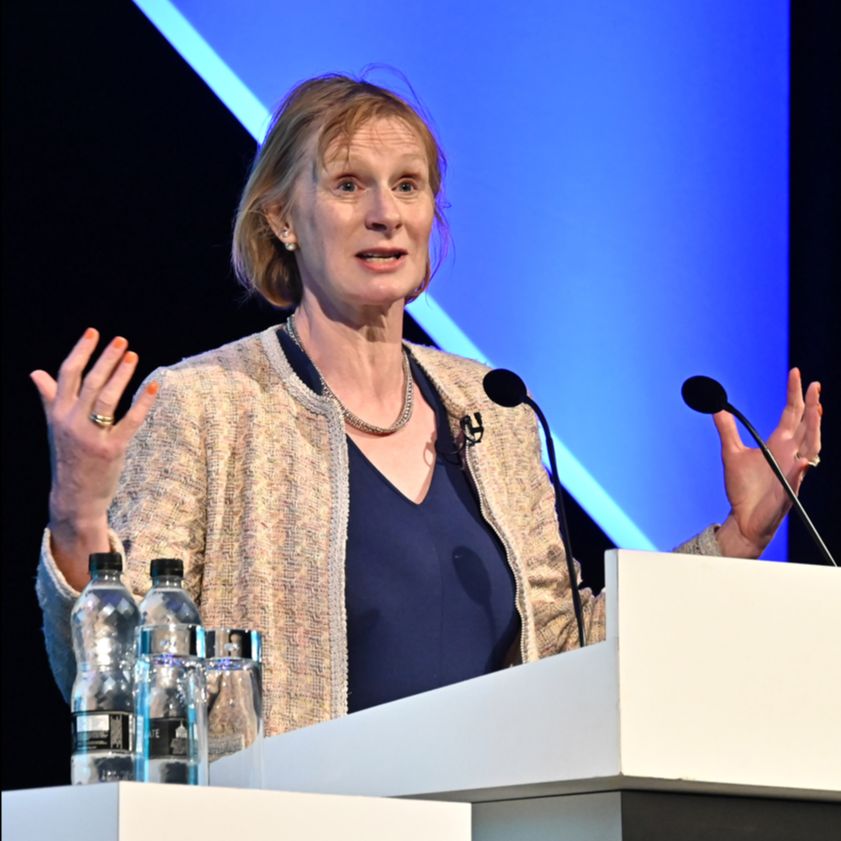
DISCUSSIONS & SEMINARS
This year’s discussions will hear from leading voices that will bring to light the perspectives of both investors and occupiers to explore the challenges and opportunities ahead. Seminars will provide a forum for more intimate analysis of the future BCO research agenda and how to address the key issues that the office sector face.
Join the debate on how to create inspiring places that foster a healthy and sustainable work future, and an office sector that plays a vital role in supporting resilient and dynamic cities. Read more.
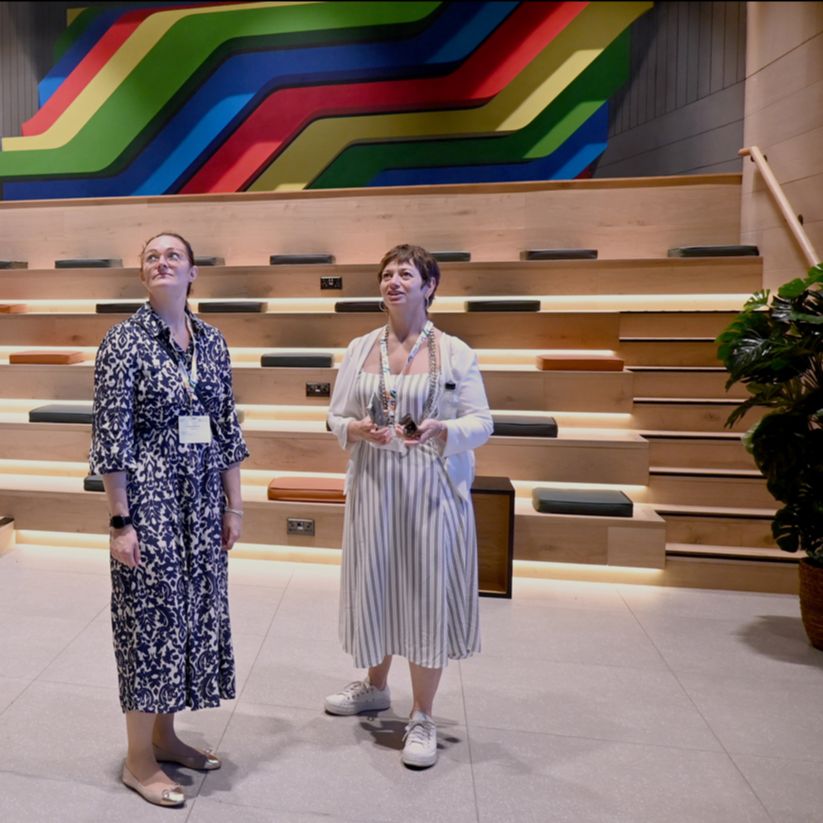
TOURS
Our 2023 tours will incorporate the headquarters of some of the most innovative global companies, and the opportunity to discover the city’s rich architectural heritage.
There are currently 12 options to choose between, from the 34,000 square metre human-centric Microsoft One Campus, to the ‘Near-Zero Energy’ Trinity Business School, or the vibrant large scale urban regeneration success that is The North and South Docks – there are plenty of tours to inspire. Be sure to secure your top tour choices. View the full list.
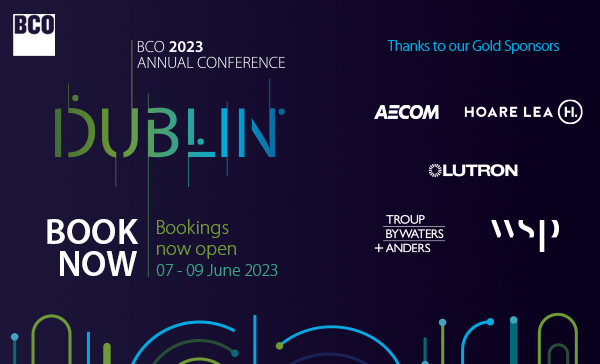
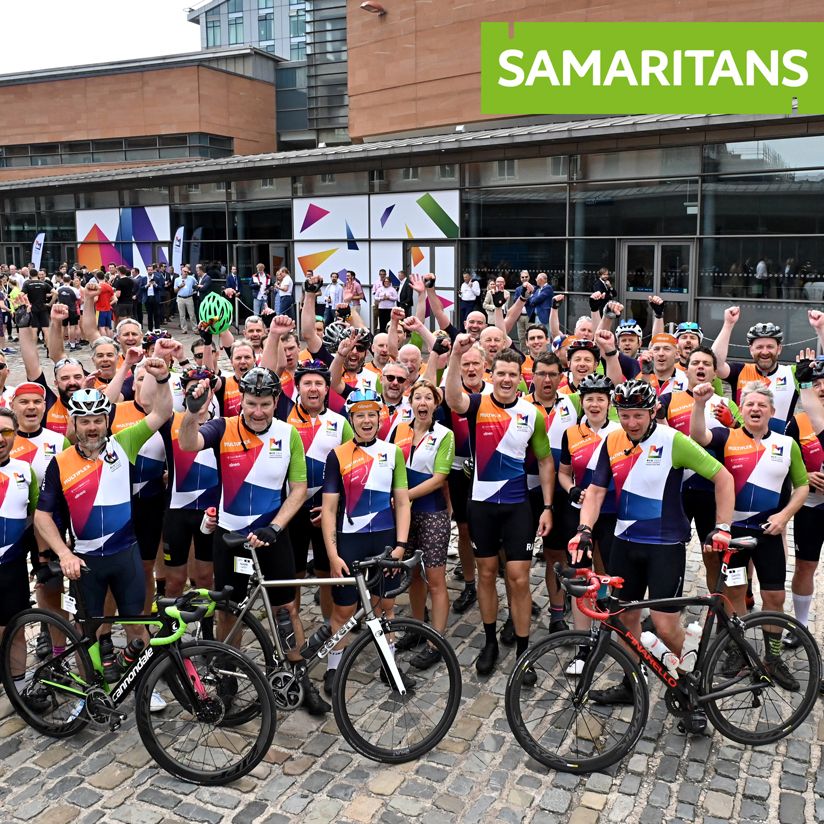
CYCLE CHALLENGE
This year’s cycle challenge, in support of the Samaritans, will take place from Sunday 4 to Wednesday 7 June. The ride will depart on Monday morning from Kenmare Bay, County Kerry, and head through some breathtaking scenery. Riders will take in all that the Emerald Isle has to offer with a High Pass, lush green pastures, a ferry crossing, and part of the Wild Atlantic Way, before heading East through the rolling countryside and reaching Dublin on the Wednesday afternoon, where ice cold beer awaits! Further details.

GOLF CUP
Join us on Wednesday 7 June at Carton House to play the O’Meara course, a lush Irish parkland designed by the winner of both The Open and The Masters in 1998.
The Par-73 layout is designed to challenge golfers of all abilities whilst bringing the beauty and history of the Carton House estate to the fore, with many natural hazards, such as the River Rye and ancient woodlands.
The day concludes with BBQ lunch and prize giving. Check the itinerary.

FISHING
Lough Ennell is located just outside the beautiful town of Mullingar, County Westmeath, and is a well-loved retreat for anglers and all those seeking rural tranquillity within easy reach of the bright lights of the capital. The Lough is renowned for its wild brown trout, remarkable in shape and colour, with their strong fight attracting anglers of all skill levels from around the world. Details here.
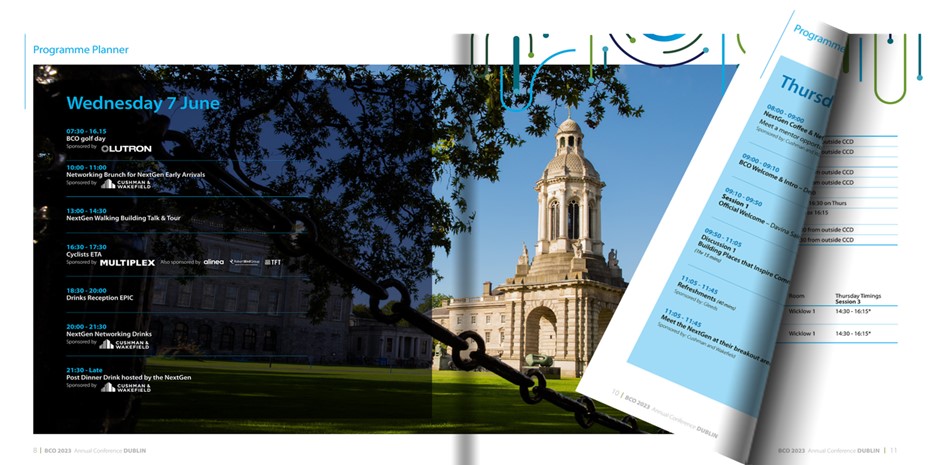
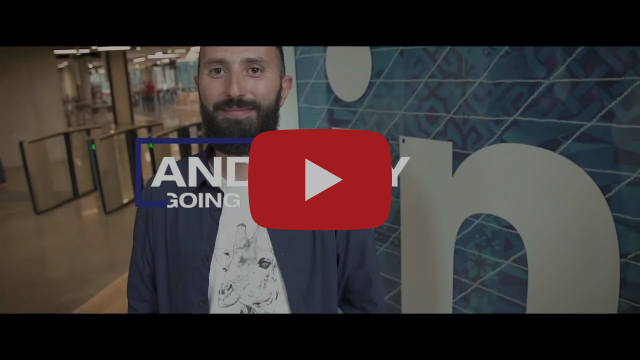
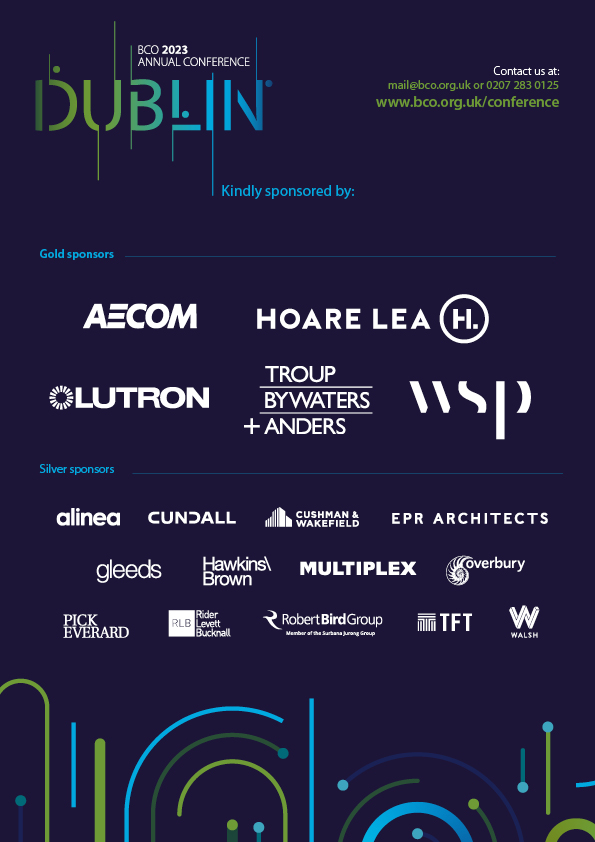

#BCOconference | #Dublin2023
.png)
Follow the BCO NextGen North committee on LinkedIn:
Amy Leech, tp bennett (Chair)
Francesca Harrison, Ryder Architecture (Deputy Chair) Emma Bramley, Cartwright Pickard Architects
Tom Giddings, Rider Levett Bucknall
Joseph Lazell, Atelier Ten
Danielle Ford, Dalbergia Group
James Thorneycroft, Arup
Jamie Risner, Arup
Bianca Spoeala, Cundall
Charlotte Wild, Bruntwood
Richard Mitchell, Savills
Learn more about the BCO NextGen here.
.png)
.png)
.png)
Follow the 2023 BCO NextGen London Committee on LinkedIn.
Hannah Buxton, RX London (Chair)
Oliver Hall, Make Architects, Deputy Chair
Kieron Taylor, AKT II
Sarah Evans, Multiplex
Isabella Clark, AECOM
Beth Starling, Will + Partners
Sam Gardner, Sheppard Robson
Matthew Sumpter, Ridge & Partners LLP
James Chester, CO-RE
Ben Simpson, Fletcher Priest
Angela Joseph, Alinea Consulting
Matthew Redgrove, Turner & Townsend
Beth Wootton, Derwent London
Azzahra Mahmud, HTS
Chloe Prince, Catella/APAM
Louis Arron, U&I
Hannah Alden, British Land
Jack Hawkins, GPE
Tom Bremner, Cushman & Wakefield
Learn more about the BCO NextGen here.

ENTRIES CLOSE NEXT WEEK FRIDAY
We know it’s not easy to win a BCO Award. The submission requires effort, precision, time, teamwork and skill. Each year entrants need to beat stiff competition, but when they finally get to hold one of the coveted BCO trophies, they can do so safe in the knowledge that they have achieved something outstanding.
Winning a BCO trophy is something that every team member can be proud of and boast about. It provides a focus for others to study, appreciate, and aspire to in their own projects and workplaces.
If you haven’t done so already, make sure to download the 2023 Entry Guide and register for our awards competition at www.bcoawards.co.uk. You can save and return to your entry at any point before submitting.
Closing deadline for entries is Friday 25 November 2022 @5pm.
With thanks to our Platinum Sponsor and Media Partner for the BCO Awards 2023

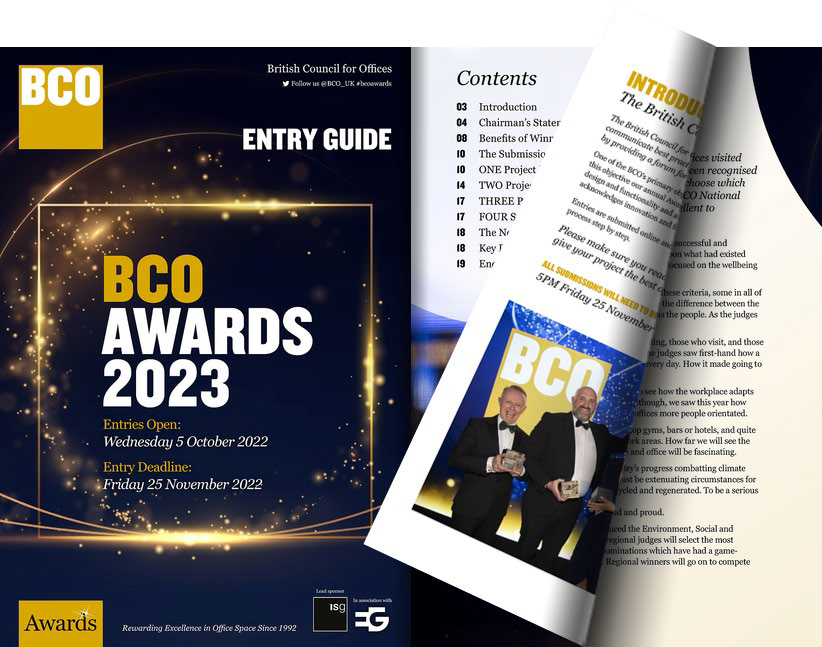

Questions
If you have any questions about the BCO Awards or if you need help with your entry, please email Clare Hollick at Createvents clare@createvents.co.uk or call 01183 340085.
By:
Mike Burton, BCO National Awards Judging Chair 2023

It’s not easy to win a BCO Award: to demonstrate why your project is excellent, your submission requires effort, precision, time, teamwork, and skill – as was required to deliver your development.
And it’s that demanding process that ensures that only special projects even apply, only extra special projects get nominated, and only excellent projects win an Award. So, it really is an outstanding achievement to get hold of one of the coveted BCO golden bricks. It’s so much more than a brilliant night out with great company.
The BCO exists to research, develop, and communicate best practice in all aspects of the office sector. We define excellence in office space, and BCO Award winners are the real-world examples of that. An Award is a celebration of outstanding achievement, that every team member can be proud of and boast about. It provides a focus for others to study, appreciate, and aspire to in their own projects and workplaces.
Winning a BCO Award spreads the word regionally, nationally, and globally. Winning projects are written about in the business, local and national media and we run tours for the winners so visitors can admire and learn from what they see.
Just like the entrants, the BCO Awards, the categories, and the criteria used to determine a winner evolves to reflect what’s happening in the industry and the wider world. When the BCO Awards started in 1992 winners were those that displayed excellence across the board. In 2000 and 2001 the distinct categories we use today were created and the following year Regional Awards began. Three more Awards were added up to 2011 – Presidents, Innovation, and Test of Time. And in 2023 we have added the Environment, Social and Governance (ESG) Award.
That this is the first new category for 12 years highlights the significance of this new Award and our recognition of the challenge that confronts us. The property industry is at the forefront of tackling the climate emergency and our provision of healthier sustainable workplaces is critical for the planet’s future.
The Environment, Social and Governance (ESG) Award
The ESG award will go to a project which has had a game changing influence on the environment. It will recognise social value and the true impact a building has on its users and surroundings. We will examine the role of governance and creditability; we want to find out how energy and water usage has been significantly reduced; and we will celebrate sustainability.
The ESG Regional Award winners will be chosen by the regional judges from the other categories and will go on to compete for the National Award. The judges will be looking at the hard facts. Projects will be assessed and scored on the actual achievements and the proof that they are making a difference. There won’t be any greenwashing – an ESG winner will have made a tangible step to tackling the climate emergency.
The judges will require evidence of the results of your sustainable measures. These include:
Quantifying and costing your submission
Key criterion for the new ESG Award will be the detail and information submitted, letting us know that the money has been spent wisely and that resources haven’t been squandered. And this will be the case for all the Awards, the judges want to see value for money – it’s no good tackling the climate emergency and ignoring the financial crisis.
Across the board, Award submissions will need to give proof to the judges that the money has been used to good effect. We won’t let anybody else know the detail, but a lack of accurate costings will make it virtually impossible to win a BCO Award. As such your best bet is to get this information put together by a professional cost consultant.
Make sure your consultants let us know everything asked for. It should be broken down as illustrated for clear and easy understanding and analysis. Do not skimp on the detail; make sure you explain fully:
One of the key components for a value for money is the longevity and adaptability of the building. We want to know why your project will still be standing-proud in a century. How will it withstand the weather, market demands, technological improvements, and user preferences.
The judges will need details of the building facilities, quality, durability, and maintenance. We will examine building connectivity and intelligence. We will want to see evidence that your project meets the demands placed upon it today and in the future.
We want detail of:
Into 2023

No one thinks compiling this information will be easy and you will need to start early to collect and measure the data. Regardless of the outcome there’s no doubt that the record you build from your submission will be invaluable for you in your other projects. It will be an immense aid to the help the ongoing occupation of the building and its evolution.
But above all, do it right and successfully get across how your project is actually excellent, and on October 3rd, 2023, you might be up on the stage of the Grosvenor grasping a Golden Brick – an Award that is earned not won.

TIME TO START YOUR ENTRY!
Entering the 2023 BCO Awards is easy: simply download the 2023 Entry Guide and register for our awards competition at www.bcoawards.co.uk. Don’t worry if you don’t have all of the project information available at this stage, you can save and return to your entry at any point before submitting.
Entries are submitted online in four steps:
1. Enter project details
2. Answer the ‘Judges Questions’
3. Upload 10 images
4. Pay entry fee and submit
Please make sure to read the section with the Judges’ Questions carefully, as some questions have changed.
Closing deadline for entries is Friday 25 November 2022 @5pm.
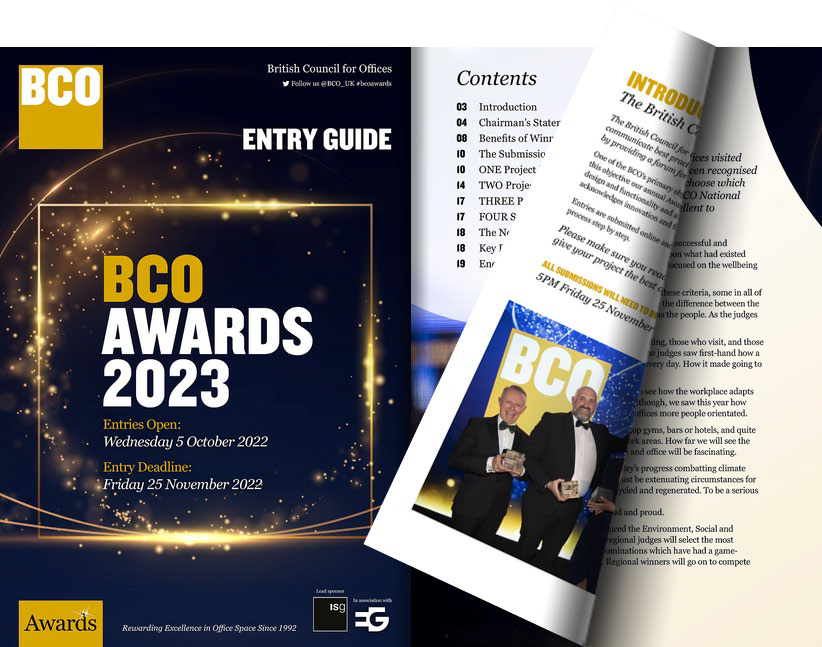
Key Dates
2022
25 November: Closing date for entries
1 December: Regional table sales open
2023
January – February: Regional Judging
25 April: London Awards Lunch, London
27 April: Northern Awards Dinner, Manchester
12 May: Scottish Awards Lunch, Glasgow
16 May: South of England & South Wales Award Dinner, Cardiff
19 May: Midlands & Central England Awards Lunch, Birmingham
1 June: National table sales open
June-July: National Judging
3 October: National Awards Dinner, London
With thanks to our Platinum Sponsor and Media Partner for the BCO Awards 2023

Questions
If you have any questions about the BCO Awards or if you need help with your entry, please email Clare Hollick at Createvents clare@createvents.co.uk or call 01183 340085.

Earlier this year, we challenged our NextGen members to put forward their boldest, most innovative and most creative ideas for the future workspace. Centring their focus on the requirements of the modern office, we asked for the most revolutionary ideas yet.
We received brilliant submissions from all who entered; the judging panel were incredibly impressed with the quality and the bold and creative ideas each participant had, and it was difficult for judges to pick out just six finalists.
Over the course of the last few months, our six finalists undertook state-of-the-art public speaking training from Ginger Leadership Communications. Each delivered a full 10-minute TED-style talk to a live audience on Thursday 29 September, flexing their newfound skills and sharing their thought-provoking ideas with the wider industry at Storey Club on Liverpool Street.

The group have been supporting each other throughout the public speaking programme, and will have been on quite the journey together. To avoid pitching them against each other, there was no overall winner — this was an evening to celebrate the achievements of our NextGen community.






Where do you get your best ideas?
Event sponsors: Franchi, British Land, Storey, Multiplex, Parkeray, Gensler, Edge GB, Core 5 and Opera.
Follow the BCO’s NextGen and stay up to date via social media and by subscribing to e-newsletters. E-mail mail@bco.org.uk
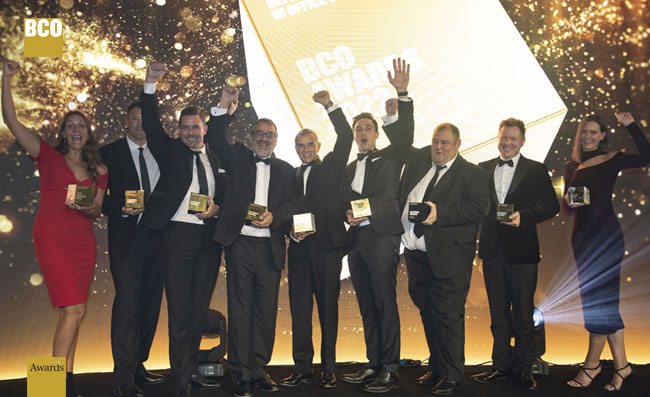
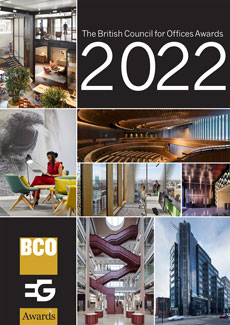
Congratulations to all of our BCO National Awards Winners 2022!
Last night’s Awards dinner at the Grosvenor House in London attracted over 1,200 key players from the industry to celebrate the best-in-class buildings and the talented project teams that have made them happen.
Find out who’s picked up the top prizes of this year’s competition and download your copy of the BCO Awards Supplement.
Are you one of next year’s Awards winners?
Only one way to find out! Entries for the 2023 BCO Awards are now open.
Download the Entry Guide today and start preparing your entry. Make sure you read the Entry Guide carefully as some of the Judges’ Questions have changed.
The closing Deadline for Entries is Friday 25 November 2022.

With Thanks to our National Awards Sponsors
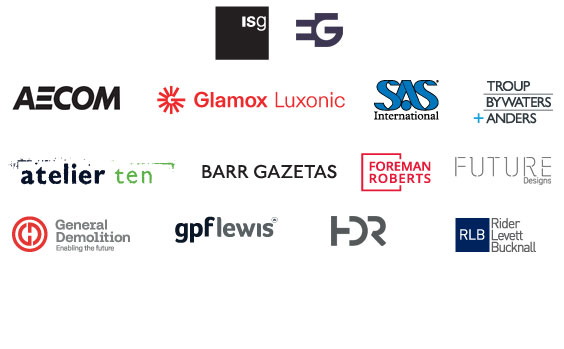

BCO NEXTGEN AWARDS | 23 NOVEMBER 2022
We are delighted to invite you to attend the 2022 NextGen Awards ceremony on Wednesday 23 November. To mark this special event in the BCO’s calendar, and to celebrate the great work of the office industry’s young professionals, we have secured a new and exciting venue: The Bloomsbury Big Top.
The evening will once again comprise of sparkling reception, a sit-down 3-course dinner, the awards presentation (with our must-see host to be announced very soon!), and live music from The Kitts, the ultimate party band.
Both BCO members and non-members are welcome to celebrate with us. Bookings are now open and tickets are available on a first-come, first-served basis, so follow the link below to confirm your place at BCO NextGen’s biggest event of the year!
